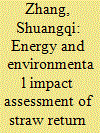| Srl | Item |
| 1 |
ID:
142053


|
|
|
|
|
| Summary/Abstract |
This article explores the convergence between three pillars of influence – feminist security studies, civil society activism and policy decision-making – and its role in the adoption and implementation of United Nations Security Council Resolution (UNSCR) 1325. It argues that these three pillars, individually and collectively, have made important contributions to the debate and action on the gender and security agenda, but that they remain organically disconnected. Their convergence has the potential to achieve path-breaking results in the sphere of gender and security, whilst their divergence makes transformation unattainable. We show the disconnect in the application of UNSCR 1325 in Africa and argue that this is partly the reason why, despite enormous efforts, the gains realised in terms of gender equality in the peace and security arena have been negligible.
|
|
|
|
|
|
|
|
|
|
|
|
|
|
|
|
| 2 |
ID:
166398


|
|
|
|
|
| Summary/Abstract |
The utilization of straw plays an important role in China's sustainable development. Returning straw to fields as organic fertilizer (straw return) and processing straw into straw briquette fuel (SBF) are two of the most promising methods for employing straw; however, there is a lack of information with respect to comparing these two methods. Therefore, a case study was conducted in Heilongjiang Province to estimate the energy and environmental impacts of straw return and the substitution of SBF for rural heating coal. This study aims to provide policymakers with useful information and to encourage rational decision-making regarding the efficient utilization of straw resources. Results showed that both straw return and substituting SBF for rural heating coal could have significant impacts on energy and the environment, while substituting SBF for rural heating coal had advantages over straw return in all aspects. Moreover, substituting SBF for rural heating coal was more acceptable to famers, and thus was easier to promote and could resolve the problem of open straw burning more effectively than straw return. Therefore, greater attention should be paid to SBF utilization, especially in rural areas. Results of this study can also benefit other regions to improve the utilization of straw resources.
|
|
|
|
|
|
|
|
|
|
|
|
|
|
|
|